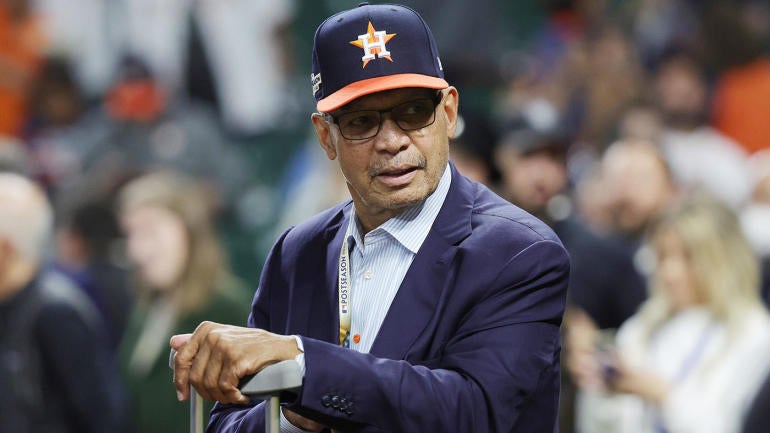
The Houston Astros are off to a miserable 4-10 start to the new season. Their woes can be traced to a battered rotation that, for the time being, is without Justin Verlander, Framber Valdez, Jose Urquidy, Lance McCullers Jr., and Luis Garcia. The Astros' patchwork starting five currently ranks 24th in the majors in unit ERA.
The Astros reportedly pursued reigning National League Cy Young Award winner Blake Snell before he signed a two-year contract worth $62 million with the San Francisco Giants. On Thursday, Hall of Fame outfielder Reggie Jackson, now a senior adviser with the Astros, offered some insight into why the Astros were OK losing out on Snell.
"He signed a two-year deal, I want to say for $62 [million]. That's too much for him," Jackson said during an appearance on "The Show" podcast, hosted by New York Post reporters Jon Heyman and Joel Sherman. "He's been hurt a couple of times. And I think there's incentives on top of that. He's also got an option on his own. And between the four or five people that make the decisions with the Astros, we don't play that game."
The group Jackson is referencing includes himself, owner Jim Crane, former Astros Craig Biggio and Jeff Bagwell, and general manager Dana Brown. As for the game they don't play, and Jackson's belief Snell is overpaid … well, let's just say it's an interesting and oddly corporate sentiment from someone who, while active, told the Los Angeles Times in March 1976 they had "a hard time believing athletes are overpriced."
To be fair, Jackson is mostly correct about Snell's somewhat convoluted contract structure. Snell will make $15 million this season before deciding on a $30 million player option afterward. If Snell exercises his option, half of his 2025 salary will be deferred until 2027. Additionally, Snell will receive a $17 million signing bonus that will be paid in January 2026, according to Cot's Contracts.
Is Snell worth his contract? We suspect that Jackson, when not employed in a management position, would have said absolutely -- in large part because that's what a team was willing to pay him. It's certainly fair to develop the collywobbles about aspects of Snell's game, but in some respects he's the model for the modern starter.
Over his last three seasons, Snell has compiled a 3.15 ERA (125 ERA+) and a 2.63 strikeout-to-walk ratio. His 9.6 estimated Wins Above Replacement, per Baseball Reference, is tied for 20th among pitchers, placing him in the same vicinity as Sonny Gray, Carlos Rodón, Jordan Montgomery, Joe Musgrove, and Framber Valdez.
For reference, four of the five have inked new deals over the last two years: Gray signed for three years and $75 million; Montgomery signed for one year and $25 million (with a player option); Rodón inked a six-year pact worth $162 million prior to last season; and Musgrove signed for five years and $100 million. Snell's $31 million average annual value is the highest of the group, but three of the other four are topping $25 million, and unlike Snell, none of them have the benefit of winning multiple Cy Young Awards.
As for Valdez, he'll qualify for free agency after the 2025 campaign. You may as well pencil him for at least a $25 million annual ask based on the above guideposts. We'll find out soon enough if the Astros are willing to play that game with him.


















